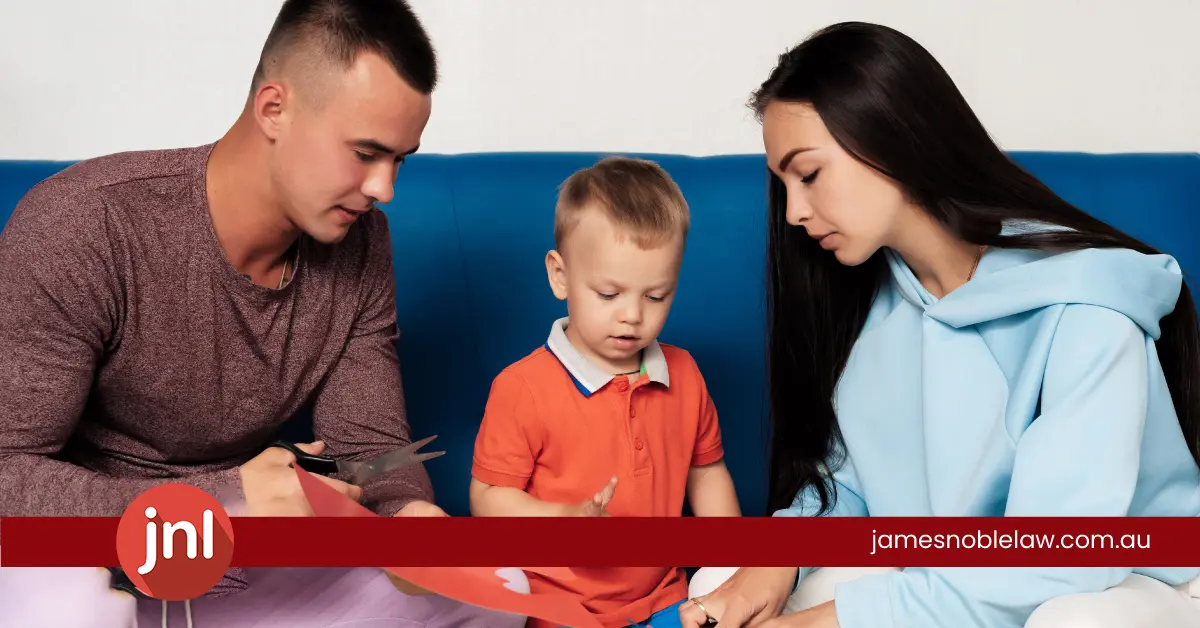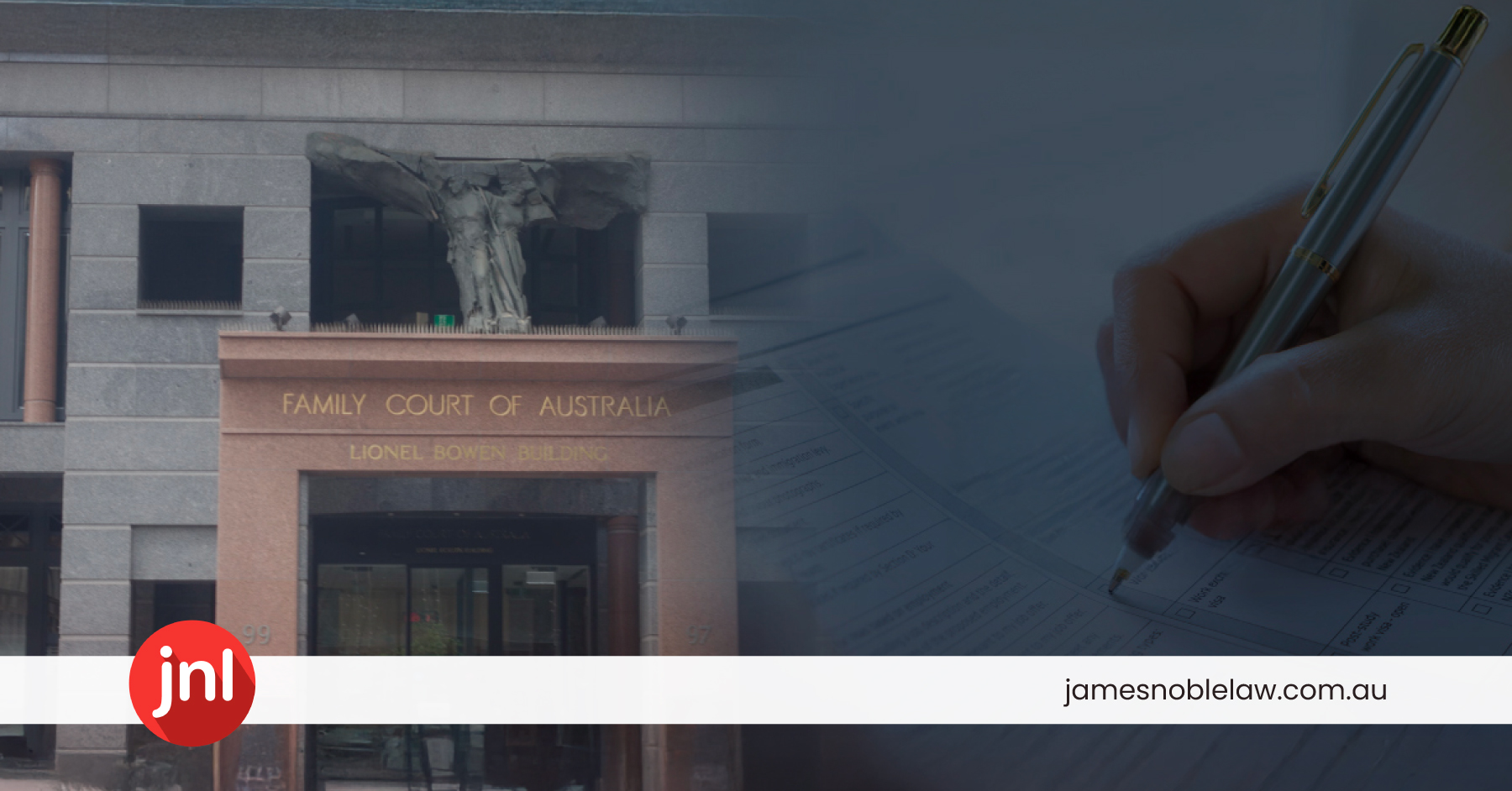Latest blog posts
Partial Property Distribution: The Law – Concepts and Principles
Partial Property Distribution Sections 79 and 80(1)(h) of the Family Law Act confer power on the Court to make orders for an interim property settlement including for litigation. Funding The relevant legal principles that apply are as follows: (1) Section 79 confers a discrete power to make orders for property settlement and the Court may exercise that power through a succession of orders until the power is exhausted or until a final order dealing with all the known property of...
Read More
Injunctions To Preserve Matrimonial Property Concepts And Principles
In family law disputes, the preservation of matrimonial property is often crucial to ensure a fair and just resolution. Under the Family Law Act 1975 (Cth), courts have the power to grant injunctions that restrict parties from disposing of or dealing with assets that form part of the matrimonial property pool. This article explores the statutory basis and legal principles governing such injunctions, with reference to the decision in Liu v Xiao (2018) NSWSC 1401. Statutory Power to Grant Injunctions...
Read More
Understanding Defacto Relationships: Determining Genuine Domestic Basis
Understanding Defacto Relationships Section 4AA(1) of the Family Law Act sets out the principles that apply to defacto relationships. This Section mandates that regard must be had to all the relationship circumstances in determining whether it is one of a couple living together on a genuine domestic basis. Section 4AA(2) sets out some of the circumstances to be considered, including “whether a sexual relationship exists”, and Section 4AA(3) provides in effect that no particular finding is determinative. Each case falls to...
Read More
Interim Spousal Maintenance | The Law Concepts and Principles
INTERIM SPOUSAL MAINTENANCE The law – concepts and principles Section 74(1) of the Family Law Act empowers the Court to “make such order as it considers proper for the provision of maintenance” in accordance with Pt VIII of the Act. That primary requirement is set out in s 72(1) of the Act, as follows: (1) A party to a marriage is liable to maintain the other party, to the extent that the first-mentioned party is reasonably able to do so,...
Read More
CONSTRUCTIVE TRUSTS. Their Relevance in Family Law
CONSTRUCTIVE TRUST. Their Relevance in Family Law A trust arises by operation of law where it would be unconscionable for a person who holds an asset to deny the beneficial interest of another person. Viewed in its modern context, the constructive trust can properly be described as a remedial interest which equity imposes regardless of actual or presumed agreement or intention (and subsequently protects) to preclude the retention or assertion of beneficial ownership of the property to the extent that...
Read More
Property issues in a de facto relationship
Property issues in a de facto relationship Australia The Family Court of Australia has jurisdiction under the Family Law Act 1975 (Cth) (“the Act”) to determine matters relating to property as between parties who have not been married, where the parties have lived in a de facto relationship for a period of no less than two years and the relationship finally ended after 1 March 2009, the date on which the particular provisions of the Act commenced. The touchstone or foundational...
Read More
The Role of the Appellant Court in Family Law
The Role of the Appellant Court in Family Law - Australia The High Court has reiterated many times that orders made in the exercise of judicial discretion under the Family Law Act as to the alteration of property interests can only be set aside on a strictly limited basis in accordance with the principles in House v The King (1936) 55 CLR 499 (“House”) It is not enough that the judges composing the appellate court consider that, if they had been in the...
Read More
Consent Orders in Family Law Matters
Consent Orders in Family Law Matters - Australia According to the information provided by Adam Cooper in a paper he has delivered. Consent orders are a very useful means of obtaining orders from the Family Court in regard to property and children's matters. Consent orders carry many advantages, including the exemption in property matters for roll-over stamp duty and capital gains tax. Being an economical and less invasive means of resolution, an ability to divide superannuation interests between the parties,...
Read More
Parenting Orders for Children with Special Needs
Parenting Orders for Children with Special Needs In Part VII of the Family Law Act (1975), there are not specific distinctions for children without special or higher needs when determining what is in the best interests of said child. These are, however, important in determining Orders that will adhere to the child’s best interests. According to studies, parents of children with developmental disabilities are twice as likely to divorce than parents of children without such conditions (Bak & Dunn, 2022)....
Read More
The Basics of Child Support in Australia
What is child support in australia Child support in Australia refers to the financial support provided by one parent to another to help with the costs of raising their child(ren) after separation. There are two main ways this support is managed: self-managed arrangements, where parents agree privately on the amount and method of payment; and formal arrangements through the Child Support Agency, which calculates payments based on a formula considering income, care percentage, and the needs of both parents and...
Read More
How Long Does It Take To Get A Divorce?
How Long Does It Take To Get A Divorce? Before granting a divorce, the Federal Circuit and Family Court of Australia must be satisfied that there is no chance of reconciliation and there is no reasonable chance that the parties will get back together. For this reason, parties must be separated for a period of at least 12 months before applying to get a divorce. Once this period has passed, you may complete an Application for Divorce either solely or...
Read More
Objection to vaccination of children. Family Court’s jurisdiction
In a recent decision in the Family Court found that it was very regrettable that the mother did not support the vaccination of children. The Court considered that her opposition to the child being vaccinated, as the child’s principal carer, would likely complicate the process and make it much more difficult for the child. The Court considered that in these circumstances it would be counter-productive for the mother to accompany the father and the child to any medical appointments concerned...
Read More
Paid domestic violence leave
Paid Family and Domestic Violence leave for employees. The Fair Work Ombudsman has introduced Family and Domestic Violence leave for employees. Paid family and domestic violence leave was made available for employees of non-small businesses (businesses with over 15 employees) from 1 February 2023. Employees who work for small businesses (less than 15 employees), will be able to gain access to this paid leave from 1 August 2023, however, they can still access the existing 5 days of domestic and...
Read More
The Evatt List – Federal Circuit and Family Court of Australia
What is Evatt List? The Evatt List is an initiative in the Federal Circuit and Family Court of Australia designed to triage and progress matters that are considered high-risk. The list aims to guide families that are going through a separation with high-level risks through the Court system at a much faster rate, given the urgency of their situation. Matters are eligible to be placed onto the Evatt List if it is for parenting orders only and the parties have...
Read More
Awarding Costs For False Statement To Judge.
Beware of what you tell to the Judge The Court has the power to award costs for false statement against a party who deliberately misleads the Court A vengeful spouse in Family Law Matters may seek revenge against a former partner by making a false statement and misleading allegations against his/her former partner, allegations that have no substance or truth. Be careful what you say. Section 157 of the Domestic and Violence Protection Act (DFVPA) confers discretion to award costs...
Read More
Uncertain Times? Relationship Difficulties Problems & Solutions
We are heading into uncertain times? The impact of the war in Ukraine and the affect on our economy The high cost of living Rising interest rates Inflation How is this affecting me? Am I able to financially care for my family? How is this affecting my partner and my family's relationship? Is the stress too much to bear? Hopefully, there is a solution But what if it becomes too much and causes a breakdown in your relationship with your...
Read More
The Affects On Parenting Of Children in 2022
AFFECTS ON PARENTING OF CHILDREN On 26 March 2020, the Chief Justice of the Family Court issued a Statement on Parenting Orders and the affects of COVID-19. The Chief Justice’s statement provided guidance on the listing of matters in the Family Court. It was issued for the purpose of guidance in legal cases and was not a legal principle. It included the following: Parents are naturally deeply concerned about the safety of their children and how the COVID-19 virus will...
Read More
Violent Conduct & The Effect On Property Issues
Violent Conduct & The Effect On Property Issues. Where there is a course of violent conduct by one party towards the other during the marriage which is demonstrated to have had a significant adverse impact upon that party’s contributions to the marriage, or, put the other way, to have made his or her contributions significantly more arduous than they ought to have been, that is a fact which a trial judge is entitled to take into account in assessing the...
Read More
Family Law & Binding Financial Agreement in Brisbane
The law in regard to Binding Financial Agreement in Brisbane is extensive and complex. The law is governed by the provisions in the Family Law Act 1975 (as amended). Similar provisions are provided in the Act for de-facto relationships. Because it is a complex area of law it is a requirement (as detailed below) that the parties entering into a Binding Financial Agreement must consult a solicitor and obtain legal advice. The relevant law is detailed as follows: LEGISLATIVE PATHWAY...
Read More
Can you use secret audio recordings in family law?
Can you use secret audio recordings in family law? As technology continues to evolve, it is becoming more common for clients to ask whether they can use secret audio recordings in their family law matters. Before you consider recording your conversation with the other party, there are several important factors that you need to consider, including: Whether the recording is legal to make in Queensland; Whether a Court will allow the recording to be used as evidence; and Whether you...
Read More






















